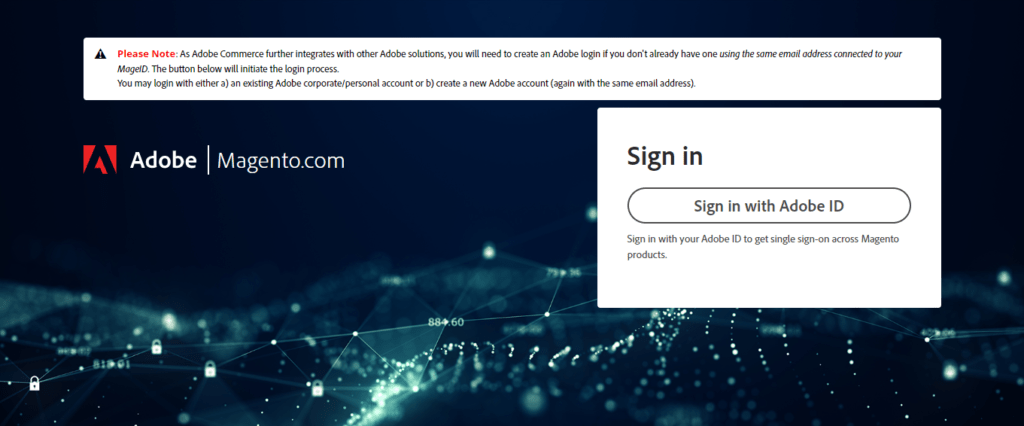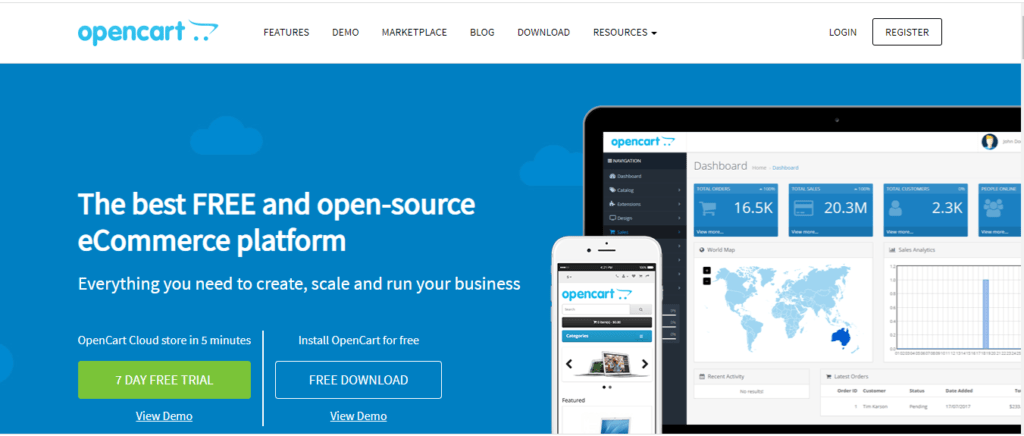The world of e-commerce is ever-expanding, having a reliable and efficient Content Management System (CMS) is crucial for the success of your online store. A good CMS helps you manage and organize your website content and provides powerful features to enhance your customers’ shopping experience. Assembling an online website, assuming an eCommerce CMS is a smart choice. To help you elevate your online store to new levels of success, we have meticulously curated a collection of the top 5 e-commerce CMS solutions available in the market.
What is an E-commerce CMS?
A content management system (CMS) is software that allows commerce shop owners to create, edit and publish digital website content without writing any code. It also allows users to modify the look and feel of the online store, like changing the product page layout, adding promotional flags, or adding new website sections to promote products better.
An e-commerce forum is an online shopping cart solution enabling you to manage and sell products instantly through your website. Some e-commerce platforms serve as CMS. In other words, it’s a user-friendly infrastructure that controls an online shop’s backend store management functions.
Best E-commerce CMS Solutions:
Multiple e-commerce CMS solutions are available in the market; it can be paralyzing to choose just one. Here is a list of the 5 best CMS solutions to simplify decision-making. Let’s analyze them right away.
Shopify

Shopify is an open e-commerce platform with lots of stand-out features. The platform is trusted by millions of businesses worldwide, generating billions of dollars in insensitive product volume. That is deemed an all-in-one eCommerce platform. Sellers can set up their online stores, order their products, and manage all orders in a single dashboard. It allows you to control multiple sell channels, eBay, and social media, including your store, retail locations, and online marketplaces like Amazon.
Features:
- Customize the storefront with the templates’ automatic settings.
- Gain full access to the HTML and CSS of your website.
- Boost mobile commerce shopping cart.
- Utilize your domain name.
- Access to a full-featured content management system.
- Use the Shopify app to control your store.
- Fulfill numerous orders with a single click.
- Promote discounts, gift cards, and social media integration.
- Enable Facebook selling.
- Import/export products via CSV files.
Pros:
- Shopify is assumed to be an easy-to-use platform for eCommerce businesses.
- Provide professional, beautiful, mobile-friendly themes.
- Empower users with multiple apps covering various accounting and inventory management aspects, including marketing and shipping.
- Shopify offers 24/7 support.
Cons:
- Shopify needs to be more flexible to provide functionality for your store compared to other self-hosted platforms.
- Mostly Shopify themes order payments.
- You require expert service to get comprehensive theme customization.
- The Accelerated Mobile Pages (AMP) feature is useful but available only in a paid app.
Price:
Shopify: $79/month
Basic Shopify: $29/month
Advanced Shopify: $299/month
Magento

Magento is the top open-source eCommerce platform. The system is designed in PHP, enabling store owners to create online businesses easily. The platform helps all business dimensions and fulfills Mobile Commerce, Omnichannel, and B2B business requirements. Similarly, Magento allows merging with numerous extensions from third groups, creating different digital market experiences. The world observes over $100 billion in insensitive product volume yearly by Magento. It provides a large Magento Marketplace, where numerous extensions can be downloaded.
Features:
- Easy drag-and-drop solution for eCommerce website builders.
- Personalize content and advertisements.
- Simple to drive engagement and sales with suitable product offers.
- Create a personalized customer shopping experience.
- Easy to create, preview and schedule content.
- User-friendly interface.
- Utilize built-in themes that are responsive and SEO-optimized.
- Combine with B2B functionality.
- Keep Updated and manage data from numerous sources in one place.
- Multi-channel marketing.
- Order management and Intelligent inventory management.
Pros:
- Powerful and feature-rich platform.
- SEO-friendly and fast-loading
- Users can customize each functionality in a store.
- Store owners can get all information from customers, orders and products.
- Provide solutions to scale with clients’ businesses.
- Big community with 360,000 forum members.
Cons:
- Complicated, so it’s difficult for non-technical people.
- Expensive plans as compared to other platforms.
- Websites required hosting.
Price: Starting Price: $1988/month
BigCommerce

BigCommerce is the main star for you to start an online business. They have attracted over 55,000 merchants of all sizes. Specifically, famous brands like Martha Stewart, Natori, Toyota, and have authorized and utilized this platform for years. It is a powerful platform for growing large businesses into big companies. Store owners fastly increase their brand awareness through social channels. They have the chance to ingress millions of possible customers worldwide.
Features:
- Make and edit pages with drag-and-drop solutions.
- Easy checkout customization.
- Mobile-optimization.
- WordPress Integration.
- Support over 70 discounts and promotions.
- Speed up your site loading with Akamai Image Manager, Google AMP, and Google Cloud Platform infrastructure.
- Sell on multi-channels.
- Boost B2B functionality.
- Help cross-border satisfaction.
- Sell in numerous currencies.
Pros:
- Easy to use.
- Quick-loading eCommerce site.
- Multiple theme options.
- SEO friendly.
- Helpful consumer service.
- Multiple third-party apps.
- Built-in blog.
- Simple to customize fields.
- Multiple staff accounts.
Cons:
- Expensive compared to other platforms.
- Limited online sale.
- The built-in blog does not boost RSS feeds.
Price:
Standard: $29/month
Plus: $79.95/month
Pro: $299.95/month
WooCommerce

WooCommerce is the main e-commerce platform today. Observing the statistic of Barn2.co.uk, the market percentage for WooCommerce is the best 1 million sites utilizing eCommerce technologies. The result indicates the huge growth of WooCommerce in current years. That support is transforming a WordPress website into an e-store. The substantial benefit of these plugins is they can allow different features to the essential WooCommerce in one click.
Features:
- Easy store set-up.
- Secure payments option.
- Accept credit cards, support deposits, and payment gateways.
- Easy to manage orders.
- Offer mobile apps for Android and iOS.
- Unlimited customization.
- Easy to handle product categories.
- Offer free multipole extensions and themes.
Pros:
- Give multiple free features.
- Free WordPress plugin.
- Simple and easy to utilize as compared to other CMS solutions.
- Easy to customize themes.
- Work fast with crucial features.
- Unlimited products.
- SEO-friendly.
- Full control of the content.
- Friendly with WordPress users.
Cons:
- Request the store admin to have a thorough knowledge of WordPress and WooCommerce.
- Installation of numerous extensions is not free.
- Users require to pay for domain and hosting.
- Plugins can’t adjust to frequent updates of WordPress.
- The platform works with WordPress themes.
Pricing: Free of Cost
OpenCart

OpenCart is well-comprehended because of its open-source and simple-to-use eCommerce platform. Pushing a huge amount of money into developing your latest store is unnecessary. That shows over 14,000 extensions and themes for e-businesses of all sizes. However, it combines over 20 payment gateways and 8 shipping procedures. In short, your store succeeds on the OpenCart platform with a low budget.
Features:
- The administrator dashboard will fully overview total orders, sales, customers, and sales analytics.
- Separate access for users and user groups.
- Use customized Pligns without a monthly fee.
- Manage numerous stores from one admin interface.
- Add other product variables.
- Allow inbuilt Affiliate system.
- Offer discounts, specials, and coupons.
- Offer setting up your backups.
Pros:
- OpenCart 3.0.3.3 is free.
- Ideal option for clients who want shopping cart functionalities.
- Flexible to work with different payment gateways and payment processors
- Easy and fast simple shopping cart website.
- User-friendly administration for the non-tech savvy.
Cons:
- Difficult to use as compared to other platforms.
- Wholesale functionality could be better.
- Security-lacked and quite baggy platform.
- Not an ideal choice for outdated themes or larger eCommerce stores.
- Some developer skills are sometimes needed as an admin.
Price:
Free of cost
Final Words
To fully utilize the robust development of e-commerce, online stores require careful practice for their implementation in the powerful marketplace. Top 5 eCommerce CMS is taught to support you in finding numerous relevant platforms. It is challenging to say what platform is the most suitable because your business requirements will decide which feature benefits you the bulk. Just settle on the CMS that can spread a firm basis for your online store and enable you to attain business objectives.

